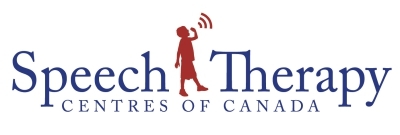The brain is a complex organ that governs our thoughts, movements, emotions, and senses. Comprehending the intricate interactions between its various parts can be difficult, particularly for those not well-versed in medical fields. Understanding and treating brain injuries can be even more challenging.
After a brain injury, such as a car accident, sports injury, or fall, the first few months are typically spent ensuring the patient is medically stable. When the patient is finally stable and released from acute care, families are relieved to have their loved ones back home. However, as they spend more time with the recovering patient, they may begin to notice changes in their personality, mood, and communication style.
Patients with brain injuries may appear physically fit or have minimal residual physical deficits, depending on the severity of the injury. However, cognitive and communication deficits often persist and improve slowly over time. These covert deficits can leave patients, family members, and friends feeling confused and frustrated.
Behavioral changes after a brain injury can result from many factors. A sense of loss of the ‘old self’ and difficulty adjusting to the ‘new self’ can increase vulnerability to behavioral problems. Cognitive and communication deficits can further contribute to this profile. Restrictive environments can exacerbate behavioral issues. Pre-injury factors that were manageable before the injury may become unmanageable after the injury, increasing stress and frustration.
Cognitively, patients with brain injuries may feel disoriented and confused. Difficulties with memory, planning, and organization can increase their dependence on caregivers, negatively impacting their self-worth and confidence. They may be rigid in their thinking and lack flexibility, leading to misinterpretation of social situations and inappropriate responses. Judgment may also be impaired.
In some cases, insight into one’s strengths and challenges may be reduced. While family members can easily see changes in the patient’s behavior, thinking, and communication, this may not be as evident to the patient. Some patients may become withdrawn or depressed or develop other mental illnesses. Empathy may be reduced and affect may be flat. Self-regulation of behavior may be difficult after a brain injury, making it challenging to control emotions. This can make patients easily irritable or agitated and impulsive.
Communication challenges are also common after a brain injury and can affect overall communication style. Patients may experience frustration due to difficulty expressing themselves or finding the right words in conversations. They may have difficulty thinking of things to say or saying them clearly.
Some patients may struggle to communicate in a socially acceptable manner or interact appropriately with others. Some may talk excessively and disrupt the natural flow of conversation, while others may speak too little and barely contribute. Some may exhibit verbal outbursts or use inappropriate language. The patient’s overall communication style may come across as passive or aggressive, and thus socially inappropriate.
Cognitive, communicative, emotional, and physical changes after a brain injury can impact behavior, communication styles, and social relationships. It is crucial for family members to understand the complex profile after a brain injury to best support their loved ones. Open communication with medical staff and brain injury rehabilitation professionals is essential to provide patients and family members with education and support.
A better understanding through education, along with patience in the recovery process, can help family members cope with changes in their loved ones following a brain injury. This allows them to take on a supportive role and facilitate progress in the rehabilitation process.
The Speech Therapy Centres of Canada is a team of dedicated speech-language pathologists (commonly known as S-LPs or speech therapists) and speech-language pathology assistants (S-LPAs) who provide assessment and therapy services to children and adults with communication disorders. Our S-LPS, S-LPAs and support staff are truly committed to providing the highest quality of service to our clients and their families. We understand that navigating the world of speech therapy may be daunting so our client services team is prepared to help you every step of the way.

